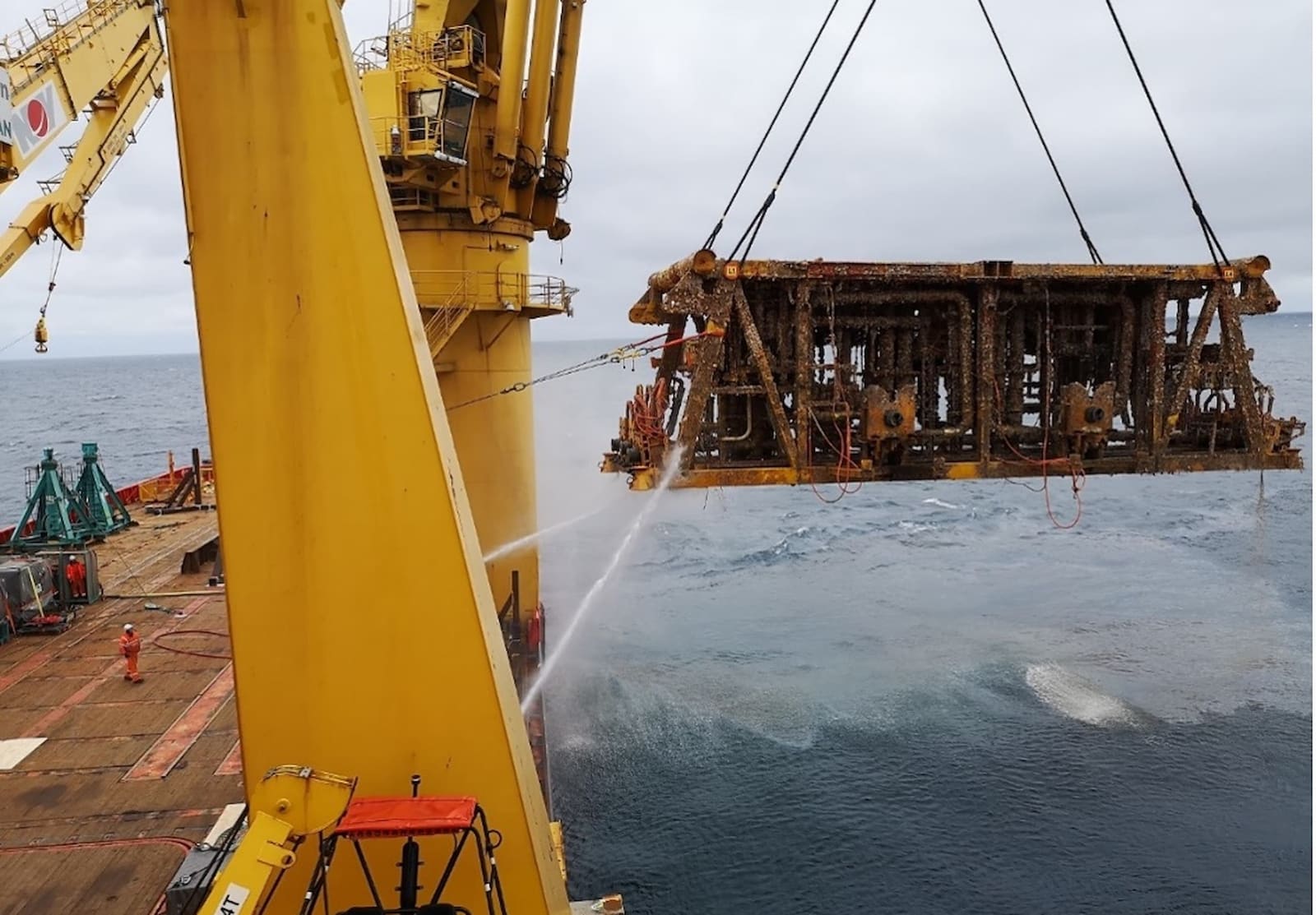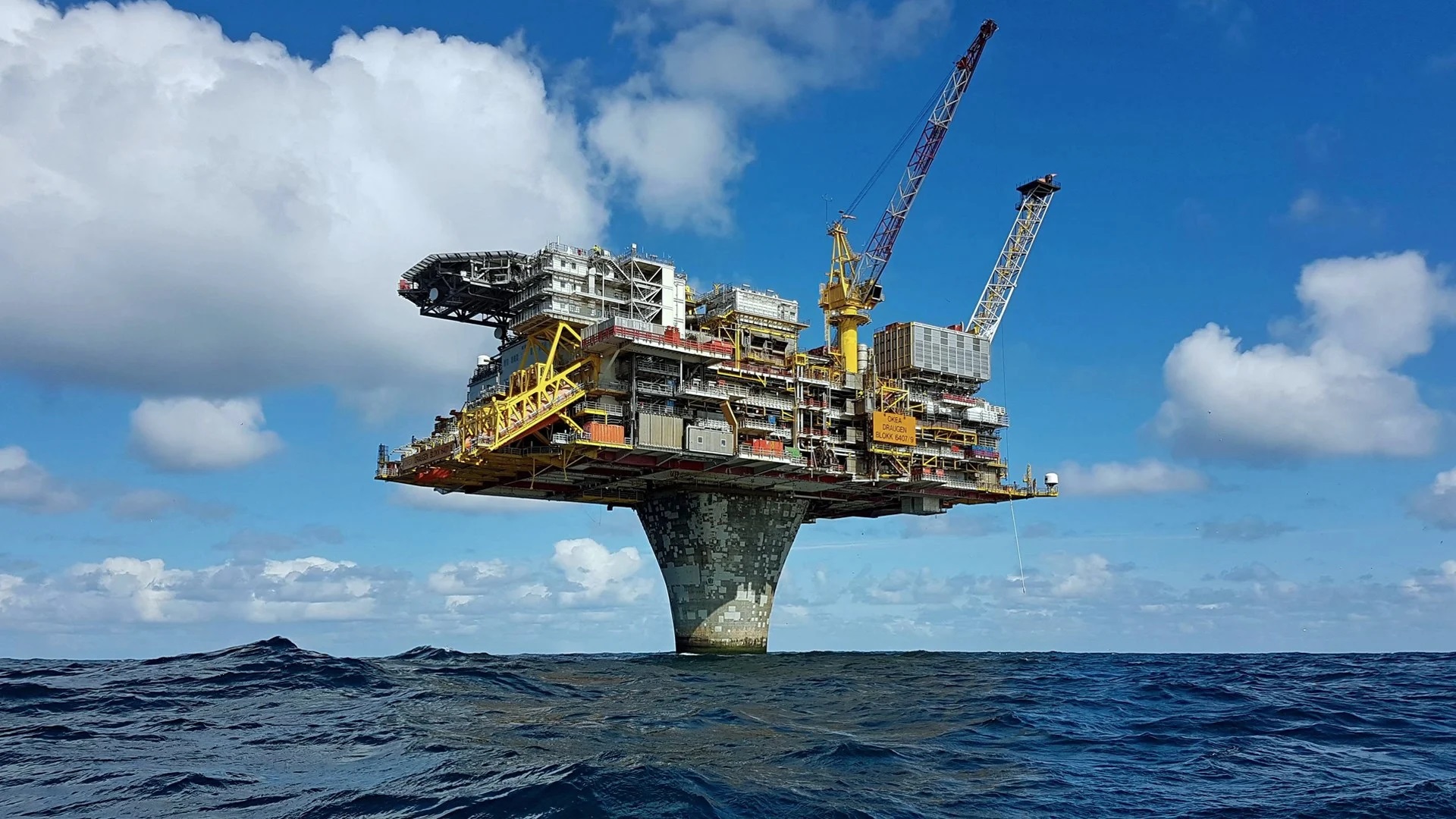25 June 2024 — Currently under construction at Hidramar Shipyard in Gran Canaria, Spain, the prototype designed to advance Ocean Thermal Energy Conversion (OTEC) in storm-prone areas has reached the 50% completion milestone. Fabrication began in March, and once completed, the cylindrical hull, along with a cold-water riser pipe and gimbal connection point, will be assembled in the Atlantic Ocean for testing. This structure is being developed by PLOTEC, a pan-European consortium funded by the EU, which includes seven companies.
The latest advancements at the shipyard include the completion of the platform’s first level, achieved by plasma cutting over 660 steel plates ranging from 6mm to 65mm in thickness. The assembly of the entire structure is progressing rapidly. Each plate is meticulously prepared for welding, mounted onto the keel for fitment verification, then welded into its final position, with all welds rigorously tested for defects.
Global OTEC Lead Engineer Sam Johnston explains that this phase of the project is particularly time-consuming due to the complexity of the keel, which comprises numerous plates requiring multiple weld passes. This meticulous process ensures structural integrity while minimising the risk of warping from the heat generated by welding. Additionally, the mooring pad eyes are currently being machined before welding to ensure a robust connection with the keel. “Once the keel plate is completed, we expect the rate of progress to increase, as many of the more intricate welds will be finished, allowing us to begin assembling the cylindrical shells onto the keel”, Johnston highlights.
The project aims to advance the renewable energy transition for Small Island Developing States (SIDS) that are vulnerable to severe weather conditions. This will be achieved by enhancing OTEC technology with an offshore platform specifically designed to withstand intense tropical storms, hurricanes, and cyclones. Predominantly reliant on outdated diesel generators, SIDS lack clean and geographically suitable alternatives for electricity generation. With the ocean as their most abundant natural resource, OTEC emerges as an appropriate solution for power generation, especially when adapted to withstand the severe weather conditions they face.
The PLOTEC 1:5 scaled prototype will be installed for testing at the Oceanic Platform of the Canary Islands (PLOCAN), approximately three kilometres off the coast. Throughout its operational life, the platform will be exposed to the conditions of the Atlantic Ocean, enabling extensive analysis of its resistance, materials, and design. Previous computer simulations and a scaled tank test conducted in London last year have already confirmed the structure’s envisioned functionality. In addition to enhancing the viability of OTEC for tropical islands in storm-prone areas, the project findings will contribute to advancements in marine engineering design, novel materials, computational modeling, and the design of other offshore floating energy and marine devices.
PLOTEC partners
The consortium is composed of the following companies: Global OTEC (UK), Cleantech Engineering Limited (UK), WavEC Offshore Renewables (Portugal), The Oceanic Platform of the Canary Islands PLOCAN (Spain), Quality Culture (Italy), Agru Kunststofftechnik Gesellschaft m.b.H. (Austria) and University of Plymouth School of Engineering, Computing and Mathematics (UK).

About OTEC
OTEC is a renewable energy technology where surface warm seawater is used to vaporise a working fluid, which then drives a turbine to generate electricity. Cold deep water is used to condense the working fluid, and the cycle is then repeated. OTEC harnesses the power of the tropical ocean, the main natural resource of islands, to provide a continuous, cost-effective supply of clean energy, with significant environmental advantages over fossil fuels and nuclear power. Combining the developments of PLOTEC with OTEC power demonstration facilities around the world, this ocean energy technology will become an even better fit for tropical islands, as other renewables have a more sensitive structure to severe weather or depend on sunny and windy days to generate electricity. As the surface seawater in the tropical area of the ocean remains warm during the whole year, OTEC can generate electricity 24/7. Adding it to a storm-resistant structure, the technology becomes the potential permanent solution to power outages in tropical islands and a faster recovery in the aftermath of tropical storms.


